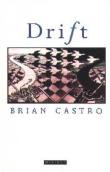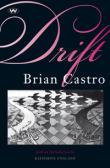AustLit
The material on this page is available to AustLit subscribers. If you are a subscriber or are from a subscribing organisation, please log in to gain full access. To explore options for subscribing to this unique teaching, research, and publishing resource for Australian culture and storytelling, please contact us or find out more.
Latest Issues
AbstractHistoryArchive Description
'Brian Castro's fifth novel is perhaps his most complex and certainly his most political. Like all his work it is productively playful, punningly irreverent and deeply concerned with sex and death, fact and fiction, but also more seriously with the redemptive possibilities of art and the existential power of the novel - all in the context of Australia's contested history.' (Katharine England's introduction)
Publication Details of Only Known VersionEarliest 2 Known Versions of
Works about this Work
-
Racial Ambiguity and Whiteness in Brian Castro’s 'Drift'
2011
single work
criticism
— Appears in: Journal of the European Association for Studies on Australia , vol. 2 no. 2 2011; (p. 113-126) 'This article focuses on Drift, the fifth novel of contemporary Australian writer, Brian Castro, and concentrates on the ambiguous racial inscriptions of some of its characters. While white experimental British writer B.S. Johnson progressively becomes darker in the novel, his desire to escape his whiteness is complicated by another extreme, the albinism of Tasmanian Aboriginal Thomas McGann. This article discusses one essential aspect of these surprising fictional representations: the critique of whiteness that they articulate. The racial ambiguity of the two main characters offers a subtle reflection on Tasmania‟s colonial legacy. Yet beyond Castro's exploration of the contingencies of the Tasmanian context, the characters‟ racial ambivalence destabilises conventional representations of whiteness. The novel both exposes the metonymic nature of whiteness and critiques the specific modes of reading the body that are involved in preoccupations with whiteness.' Source: Marilyne Brun. -
"Grammars of Creation” : An Interview with Brian Castro : 24 November 2008
Marilyne Brun
(interviewer),
2011
single work
interview
— Appears in: Journal of the European Association for Studies on Australia , vol. 2 no. 1 2011; 'This interview with contemporary Australian writer Brian Castro addresses a number of themes and concepts that are central to his critical work and fiction. In the interview, Castro discusses his oeuvre as a whole, providing insights into the starting point for his first eight novels. He comments on the concepts of transgression, hybridity, polyphonia, cosmopolitanism and play, underlining the central significance of grammar, ethics and aesthetics in his work. The interview also includes reflections on the development of Asian Australian studies and the importance of translating novels. In the final sections of the interview, Castro discusses the relation between his critical work and his novels and reflects on the common conflation of the novelist and the theorist in much literary criticism.' Source: Marilyne Brun. -
Identifying Differently: Recent Chinese-Australian Literature
2010
single work
criticism
— Appears in: Modern Australian Criticism and Theory 2010; (p. 258-272) -
y
 The Roving Party : Extinction Discourse in the Literature of Tasmania
2009
Z1775389
2009
single work
thesis
'The nineteenth century discourse of extinction - a consensus of thought primarily based upon the assumption that 'savage' races would be displaced by the arrival of European civilisation - provided the intellectual foundation for policies which resulted in Aboriginal dispossession, internment, and death in Tasmania. For a long time, the Aboriginal Tasmanians were thought to have been annihilated. However, this claim is now understood to be fanciful. Aboriginality is no longer defined as a racial category but rather as an identity that has its basis in community. Nevertheless, extinction discourse continues to shape the features of modern literature about Tasmania.
The Roving Party : Extinction Discourse in the Literature of Tasmania
2009
Z1775389
2009
single work
thesis
'The nineteenth century discourse of extinction - a consensus of thought primarily based upon the assumption that 'savage' races would be displaced by the arrival of European civilisation - provided the intellectual foundation for policies which resulted in Aboriginal dispossession, internment, and death in Tasmania. For a long time, the Aboriginal Tasmanians were thought to have been annihilated. However, this claim is now understood to be fanciful. Aboriginality is no longer defined as a racial category but rather as an identity that has its basis in community. Nevertheless, extinction discourse continues to shape the features of modern literature about Tasmania.
'The first chapter of this dissertation will examine how extinction discourse was imagined in the nineteenth century and will trace the parallels that contemporary fiction about contact history shares with it. The novels examined include Doctor Wooreddy's Prescription for Enduring the Ending of the World by Mudrooroo, The Savage Crows by Robert Drewe, Manganinnie by Beth Roberts, and Wanting by Richard Flanagan. The extinctionist elements in these novels include a tendency to euglogise about the 'lost race' and a reliance on the trope of the last man or woman.
'The second chapter of the dissertation will examine novels that attempt to construct a representation of Aboriginality without reference to extinction. These texts subvert and ironise extinction discourse as a way of breaking the discursive continuities with colonialism and establishing a more nuanced view of Aboriginal identity in a post-colonial context. Novels analysed here include Drift by Brian Castro, Elysium by Robert Edric, and English Passengers by Matthew Kneale. However, in attempting to arrive at new understandings about Aboriginality, non-Aboriginal authors are hindered by the epistemological difficulties of knowing and representing the Other. In particular, they seem unable to extricate themselves from the binaries of colonialism.' (Trove) -
An Essay on B. S. Johnson : Brian Castro's Drift
2009
single work
criticism
— Appears in: Commonwealth , Autumn vol. 32 no. 1 2009; (p. 34-44) 'The main character of Brian Castro's fifth novel, Drift (1994), is a fictional double of British experimental novelist Bryan Stanley Johnson (1933-1973). The latter's presence in the novel, visible through Castro's exploration of Johnson's literary ideas, poses the question of the novel's relation to the essay. Drift can be regarded as a reflection on B. S. Johnson's literary ideas and on Tasmanian Aborigines by way of B. S. Johnson.' (34)
-
Three's Company
1994
single work
review
— Appears in: Eureka Street , October vol. 4 no. 8 1994; (p. 41-42)
— Review of A Dream More Luminous Than Love : The Yandilli Trilogy 1994 selected work novel ; Drift 1994 single work novel -
What's New in Books
1994
single work
review
— Appears in: Australian Jewish News (Life/Style) , 2 September vol. 60 no. 50 1994; (p. 51)
— Review of Lunch with Mussolini 1994 single work novel ; Drift 1994 single work novel -
Brian's Life of Byron, or Should that Be Bryan?
1994
single work
review
— Appears in: The Sydney Morning Herald , 2 July 1994; (p. 9A)
— Review of Drift 1994 single work novel -
Fiction and Life Coalesce
1994
single work
review
— Appears in: The Courier-Mail , 9 July 1994; (p. wkd 6)
— Review of Drift 1994 single work novel -
Brilliant Display of Style
1994
single work
review
— Appears in: The Canberra Times , 9 July 1994; (p. C11)
— Review of Drift 1994 single work novel -
Where are you from? : New Imaginings of Identity in Chinese-Australian Writing
2005
single work
essay
— Appears in: Culture, Identity, Commodity : Diasporic Chinese Literature in English 2005; (p. 107-128) -
'Are you weaker than a woman, weaker even than a mother?' : Abjection and Infanticide in Dead Europe and Drift
2007
single work
criticism
— Appears in: Australian Literary Studies , October vol. 23 no. 2 2007; (p. 230-244) -
'Drift' : Storytelling and/of Annihilation
2008
single work
criticism
— Appears in: Brian Castro's Fiction : The Seductive Play of Language 2008; (p. 95-122) -
Interplay of Myth and Uncertainty in Brian Castro's 'Drift'
1998
single work
criticism
— Appears in: Doshisha Daigaku Eigo Eibungaku kenkyu , January 1998; (p. 79-91) -
An Essay on B. S. Johnson : Brian Castro's Drift
2009
single work
criticism
— Appears in: Commonwealth , Autumn vol. 32 no. 1 2009; (p. 34-44) 'The main character of Brian Castro's fifth novel, Drift (1994), is a fictional double of British experimental novelist Bryan Stanley Johnson (1933-1973). The latter's presence in the novel, visible through Castro's exploration of Johnson's literary ideas, poses the question of the novel's relation to the essay. Drift can be regarded as a reflection on B. S. Johnson's literary ideas and on Tasmanian Aborigines by way of B. S. Johnson.' (34)
Awards
- 1995 shortlisted NBC Banjo Awards — NBC Banjo Award for Fiction
- 1994 shortlisted The Age Book of the Year Award — Fiction Prize
Last amended 5 Sep 2019 14:27:37
Settings:
-
London,
cEngland,ccUnited Kingdom (UK),cWestern Europe, Europe,
- Tasmania,
- 1800-1899
- 1960s
Export this record





